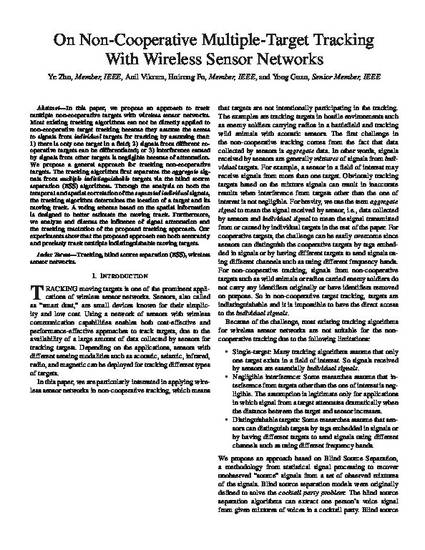
In this paper, we propose an approach to track multiple non-cooperative targets with wireless sensor networks. Most existing tracking algorithms can not be directly applied to non-cooperative target tracking because they assume the access to signals from individual targets for tracking by assuming that: 1) there is only one target in a field; 2) signals from different co-operative targets can be differentiated; or 3) interference caused by signals from other targets is negligible because of attenuation. We propose a general approach for tracking non-cooperative targets. The tracking algorithm first separates the aggregate signals from multiple indistinguishable targets via the blind source separation (BSS) algorithms. Through the analysis on both the temporal and spatial correlation of the separated individual signals, the tracking algorithm determines the location of a target and its moving track. A voting scheme based on the spatial information is designed to better estimate the moving track. Furthermore, we analyze and discuss the influence of signal attenuation and the tracking resolution of the proposed tracking approach. Our experiments show that the proposed approach can both accurately and precisely track multiple indistinguishable moving targets.
Available at: http://works.bepress.com/yong-guan/5/
